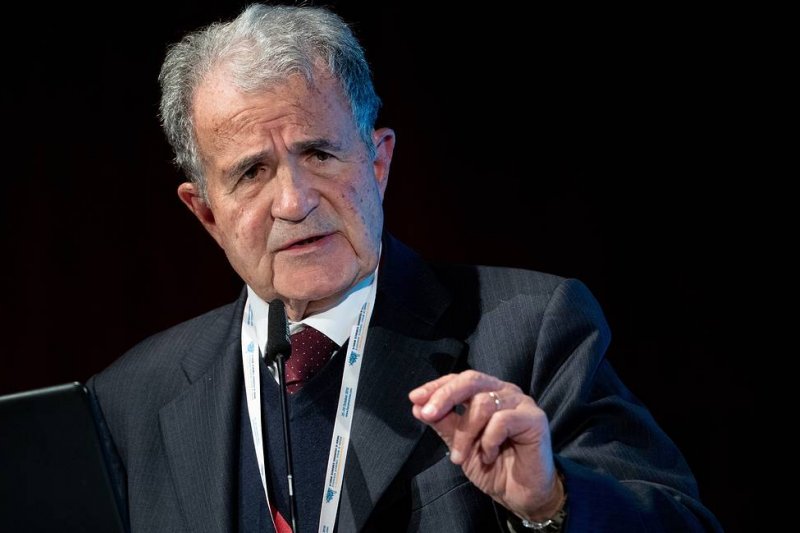Case of Albania/ Relations in Mediterranean that Serve South
In recent days we have finally started talking about the South again.
I have read about this analysis of all kinds and proposals of certain effectiveness, many of which are based on the resources made available by the new European policy. However, I am convinced that a new South cannot be built if a Mediterranean policy is not activated in the meantime. Our South will never be able to renew itself if it continues to have around it a desert full of troubles.
It is clear that a general improvement can only be achieved with a common European policy, as is happening neither for Libya nor for Lebanon. On these issues, Italy's primary role must be to raise the problem every day to a Europe that has never considered the Mediterranean as the primary objective of its policy. There are, however, cases of particular interest for Italy that can and must be included in our daily agenda: cases in which internal and foreign policy overlap inextricably.
Among these, I think of the need for greater attention to Albania.
After Italy, with the Alba mission in 1997, greatly contributed to the pacification of Albania and its rapprochement with Western democracies, the two countries have become strongly integrated with each other.
It is estimated that 700.000 Albanians live in our country and that 200.000 of them even have dual citizenship. Taking into account that the total number of Albanian citizens living in Albania is around two million and 800.000, these are human relationships of unique significance.
Economic relations are no less intense: in fact, trade with Italy exceeds 20% of the Albanian GDP, while more than a thousand Italian companies operate in Albania and almost 30.000 Albanian companies are active in our country, even if many of them are very small size. The data on the intensity of our relations do not stop at the economic aspect: numerous ministers, starting with Prime Minister Edi Rama, speak Italian and the knowledge of our language is still widespread, even if it has gradually lost ground in the face of English, now dominant in the younger age groups. We must certainly not overlook the fact that the first wave of Albanian immigration aroused in many Italians a strong sense of distrust, as it was accompanied by phenomena of widespread crime. However, we must, with equal objectivity, recognize that the close collaboration between the two countries is progressively reducing this phenomenon. While taking into account that the Albanian judicial system still presents enormous problems and is the subject of endless controversies, its slow progress is also the result of a collaboration with our judicial system. In various ways, Italian magistrates have been operating in Albania for some time, providing valuable assistance to their counterparts. Even more extensive is the work of our Guardia di Finanza and the Ministry of the Interior, which have long been committed, in collaboration with local authorities, to curbing crime phenomena, including a consistent production of cannabis which is then directed to our country.
If the positive data of the collaboration between Italy and Albania are not lacking, it is nevertheless more difficult every day to strengthen them or simply renew them. The teaching program of our language suffers from the limited resources, while the presence of Rai has become marginal and gives way to Turkey, which is increasingly active with broadcasts in Turkish and subscription in Albanian. Even if not yet with the same intensity as in other Balkan countries, the Turkish presence is growing in all fields, from public works to culture, from the military sector to an ever deeper penetration into the religious field, through support for a capillary network of mosques. A presence strengthened by the friendship between Turkish President Erdogan and Albanian Prime Minister Rama, who is increasingly attentive to his colleague's political choices.
Not only is Turkey strengthening its presence in Albania (which let's not forget it was under Ottoman control from 1478 to 1912), but Russia and Germany are also increasing their influence and China is watching everything with growing attention. In the opposite direction only the path of France, which even opposed the beginning of the negotiations for the entry of Albania into the European Union, thus pushing the Balkan country to look beyond Europe itself. It would have been appropriate for Italy to have opposed this French stance with greater determination and I believe that it is in our interest to devote much more attention to our neighboring country, in order to continue the relations of the past and strengthen their effectiveness with a strategy nationwide. Some signs in this direction are already taking place, such as the substantial contribution to reconstruction after the earthquake last year, the recent health mission to fight Covid and a renewed commitment by National Hydrocarbons Authority. However, the fields in which to increase our presence are still many: from the scholastic, cultural and linguistic one, to that of justice and security up to the economic and military one.
As I mentioned at the beginning, a more intense relationship between Italy and Albania will certainly not remedy the overall fragility of the Italian presence in the Mediterranean, but it will at least not weaken the few positive situations in which we still operate. This report will also be a useful lesson for our southern policy which, without an intensified presence in the Mediterranean, will always remain an unfinished policy.













